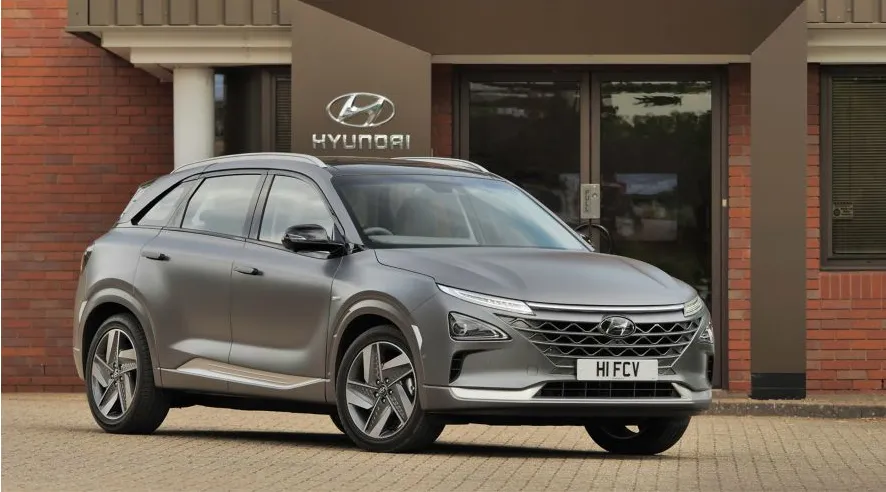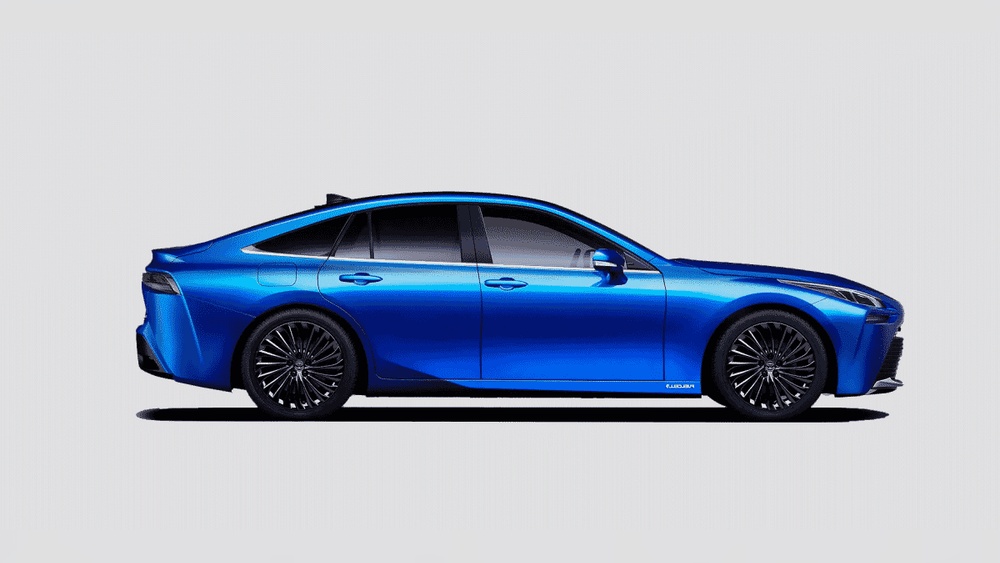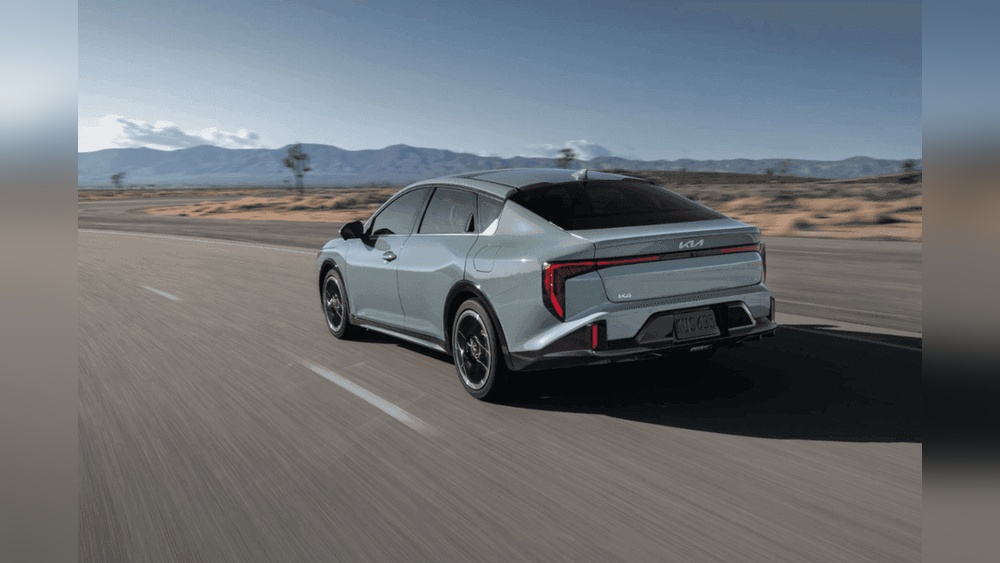Looking for the best hydrogen SUV for your family? You want a vehicle that’s not only spacious and safe but also eco-friendly and forward-thinking.
Hydrogen SUVs offer a unique blend of clean energy and practical performance that could be perfect for your daily drives and weekend getaways. But with limited options and some challenges like refueling infrastructure, choosing the right one might feel overwhelming.
In this guide, you’ll discover the top hydrogen SUVs designed with families in mind—vehicles that balance comfort, safety, and sustainability. Keep reading to find out which models stand out and how they can fit into your family’s lifestyle seamlessly.
Top Hydrogen Suvs For Families
Hydrogen SUVs offer a clean and efficient option for family transportation. These vehicles combine spacious interiors with eco-friendly fuel technology. Families can enjoy smooth rides with zero emissions. Here are some top hydrogen SUVs designed with family needs in mind.
Toyota Mirai
The Toyota Mirai is a popular hydrogen SUV known for its reliability. It offers a comfortable cabin and advanced safety features. Its hydrogen fuel cell allows quick refueling and long driving range. Families will appreciate the spacious seating and smooth handling.
Hyundai Nexo
The Hyundai Nexo stands out with its modern design and smart technology. It provides ample space for passengers and cargo. This SUV delivers strong performance and excellent fuel efficiency. The Nexo also includes driver assistance systems for safer family trips.
Honda Clarity Fuel Cell
Honda Clarity Fuel Cell combines style and functionality for families. It features a roomy interior and user-friendly controls. Although production has ended, it remains a noteworthy hydrogen SUV. Its clean energy system supports long-distance travel with fast refills.
Safety Features In Hydrogen Suvs
Safety is a top priority in hydrogen SUVs, especially for families. These vehicles use advanced technology to protect passengers. Automakers focus on reducing risks linked to hydrogen fuel. Each safety feature targets specific concerns, making these SUVs reliable and secure for daily use.
Hydrogen Flammability Concerns
Hydrogen is highly flammable, which raises safety questions. Car makers address this with strict safety protocols. Sensors detect even small leaks quickly. Vehicles are designed to vent hydrogen safely if a leak occurs. These measures reduce fire risks substantially, ensuring family safety on the road.
Storage Tank Design
Hydrogen tanks use strong, lightweight materials like carbon fiber. These tanks are tested to endure high pressure and impacts. They have multiple layers to prevent leaks and damage. The design ensures hydrogen stays contained safely in all conditions. This makes hydrogen SUVs as safe as traditional cars.
Leak Prevention Technologies
Advanced sensors monitor hydrogen levels continuously inside the vehicle. Automatic shut-off valves activate if a leak is detected. Ventilation systems direct hydrogen away from passengers. These technologies work together to prevent dangerous situations. Families can trust these safety systems during every drive.
Spacious Interiors And Comfort
Spacious interiors and comfort are essential in a family SUV. Families need room to stretch and relax during trips. Comfort helps reduce stress on long drives. Hydrogen SUVs now offer roomy cabins with smart designs. These vehicles blend eco-friendly tech with family-friendly space.
Passenger Space
Hydrogen SUVs provide generous space for all passengers. Seats often have extra legroom and headroom. Families can fit adults and children comfortably. Many models offer flexible seating arrangements. This allows easy access to the rear seats. Kids have enough space to move without feeling cramped.
Cargo Capacity
Ample cargo space is a must for family SUVs. Hydrogen SUVs feature large trunks for luggage and gear. Seats fold flat to increase storage room. This helps carry strollers, sports equipment, and groceries. Some models include underfloor storage compartments. Such designs maximize every inch of available space.
Family-friendly Amenities
Comfort means more than just space. Hydrogen SUVs include amenities for family needs. Rear climate controls keep the back seats cool or warm. USB ports and charging stations keep devices powered. Entertainment systems help keep kids busy on trips. Soft materials and noise reduction improve ride quality. These features create a pleasant environment for all.
Hydrogen Refueling Infrastructure
Hydrogen refueling infrastructure plays a key role in the usability of hydrogen SUVs for families. A strong and accessible network of refueling stations makes owning a hydrogen SUV practical. Families need reliable access to refueling points for longer trips and daily use. Without enough stations, the convenience of hydrogen SUVs drops significantly.
The current state of hydrogen refueling infrastructure varies by region. Some areas have started building stations, but many places still lack enough options. Understanding station availability, refueling costs, and expansion plans helps families decide on the best hydrogen SUV for their needs.
Station Availability
Hydrogen refueling stations remain limited compared to gas and electric stations. Most are concentrated in a few states or countries. California leads in the United States with the highest number of stations. Outside these hubs, finding a station can be difficult. This limits travel range for families without careful planning.
Many stations are located near cities or highways. Rural and suburban areas often lack hydrogen refueling options. This uneven distribution affects family trips to less populated areas. Checking local infrastructure before purchasing a hydrogen SUV is important for convenience and peace of mind.
Refueling Costs
Hydrogen refueling costs tend to be higher than gasoline or electric charging. The price per kilogram of hydrogen can vary by station and region. On average, refueling costs for hydrogen SUVs are comparable to premium gasoline prices. Families should expect a slightly higher fuel budget than traditional SUVs.
The cost also depends on the station’s technology and supply chain. Limited competition among providers keeps prices elevated. As more stations open and technology improves, refueling costs may decrease. Families should factor these costs into their total vehicle expenses.
Expansion Plans
Governments and companies plan to expand hydrogen refueling networks steadily. Investments focus on increasing station numbers and improving technology. California aims to triple its hydrogen stations in the next five years. Other regions like Europe and Asia also push for growth.
Expansion will improve accessibility and lower costs over time. This growth encourages more families to consider hydrogen SUVs. Monitoring local and national infrastructure plans helps families choose vehicles with long-term support. The future shows promise for wider hydrogen refueling availability.
Costs And Affordability
Considering costs and affordability is crucial when choosing the best hydrogen SUV for families. Hydrogen vehicles tend to have higher upfront and running costs than traditional cars. Understanding these expenses helps families budget wisely for a new SUV.
Costs include the vehicle purchase price, fuel expenses, and maintenance needs. Each factor impacts the total cost of ownership. Families must weigh these to find a hydrogen SUV that fits their budget and lifestyle.
Vehicle Purchase Price
Hydrogen SUVs generally cost more than gasoline or electric models. This is due to advanced fuel cell technology and limited production. Prices often start around $60,000 and can go higher for premium models. Financial incentives or tax credits may reduce the initial cost in some areas.
Fuel Expenses
Fueling a hydrogen SUV is different from gasoline or electric cars. Hydrogen fuel prices vary but usually cost more per mile than gasoline. On the plus side, hydrogen cars are very efficient. Families living near hydrogen stations can save time and money on refueling trips.
Maintenance And Repairs
Hydrogen SUVs have fewer moving parts than gasoline cars. This can lower maintenance costs over time. Fuel cells require specialized care and repair, which might be costly. Regular checkups ensure safety and performance. Warranty coverage often includes key components, helping reduce unexpected expenses.

Credit: insideevs.com
Efficiency And Environmental Impact
Choosing the best hydrogen SUV for families involves understanding its efficiency and environmental impact. These vehicles offer a clean alternative to traditional gas-powered cars. Their performance depends on how they use energy and their overall effect on the environment. Families need to know how these SUVs consume energy, how hydrogen is produced, and their carbon footprint. This knowledge helps in making a responsible and smart choice for daily travel and long drives.
Energy Consumption
Hydrogen SUVs use fuel cells to convert hydrogen into electricity. This process powers the vehicle’s motor with zero tailpipe emissions. These SUVs are more efficient than gasoline cars but less efficient than battery electric vehicles. They consume hydrogen based on driving conditions and speed. Efficient driving and good maintenance reduce hydrogen use. This helps lower fuel costs and extends driving range for families.
Hydrogen Production Methods
Hydrogen can be made in several ways, which affects its environmental impact. The cleanest method is electrolysis, using renewable energy to split water into hydrogen and oxygen. This produces green hydrogen with no harmful emissions. Other methods use natural gas or coal, releasing carbon dioxide. These are called grey or blue hydrogen, depending on carbon capture use. Choosing hydrogen SUVs that use green hydrogen supports cleaner energy and reduces pollution.
Carbon Footprint
Hydrogen SUVs emit no CO2 while driving. Their overall carbon footprint depends on hydrogen production. Green hydrogen keeps the footprint very low. Grey hydrogen raises the footprint because of fossil fuel use. Blue hydrogen aims to lower emissions but still involves some carbon release. Families looking for the best hydrogen SUV should consider the source of hydrogen. This helps reduce their impact on climate change and promotes cleaner air for communities.
Technology And Reliability
The technology behind hydrogen SUVs shapes their appeal to families. Reliability is key for safe, worry-free travel. Understanding the core systems helps reveal why these vehicles stand out. Hydrogen SUVs blend advanced tech with proven durability. This section breaks down the main features that matter most.
Fuel Cell Systems
Hydrogen SUVs use fuel cell systems to generate power. These cells convert hydrogen into electricity quietly and efficiently. The only emission is water vapor, making them eco-friendly. The fuel cells are designed for quick starts and smooth driving. They provide stable power for long family trips without interruption.
Integration With Electric Components
Fuel cells work closely with electric motors and batteries. This integration ensures energy flows seamlessly to the wheels. Electric components store extra energy from braking to boost efficiency. The systems communicate constantly to optimize performance and range. This synergy results in a responsive and smooth driving experience.
Long-term Durability
Hydrogen SUVs are built to last many years with minimal issues. Manufacturers use robust materials to protect fuel cells and tanks. Regular maintenance keeps systems running at peak condition. These vehicles undergo rigorous testing for safety and endurance. Families can trust them for daily use and long journeys alike.

Credit: fuelcellsworks.com
Pros And Cons For Families
Choosing the best hydrogen SUV for families involves weighing both advantages and drawbacks. Families need vehicles that offer safety, space, and convenience without compromising on environmental benefits. Hydrogen SUVs bring unique features that suit family needs but also present some challenges. Understanding these pros and cons can help families make informed decisions.
Benefits Of Hydrogen Suvs
Hydrogen SUVs produce zero tailpipe emissions, helping reduce air pollution. They offer quick refueling times, similar to gasoline cars, which saves family time. These SUVs provide smooth and quiet rides, making trips more comfortable for children. Many models have spacious interiors, perfect for family outings and daily errands. Hydrogen fuel cells have long driving ranges, reducing frequent stops. These vehicles also contribute to lowering dependence on fossil fuels.
Challenges To Consider
Hydrogen SUVs currently face limited refueling infrastructure, especially in less urban areas. This can cause inconvenience during long trips or emergency travel. The cost of hydrogen SUVs and fuel is higher compared to conventional cars. Production of hydrogen fuel often depends on fossil fuels, which affects overall sustainability. Storing and transporting hydrogen safely requires special technology due to its flammability. Families may also find fewer model options available compared to hybrid or electric SUVs.

Credit: www.media.stellantis.com
Frequently Asked Questions
What Is The Best Hydrogen Car To Buy?
The best hydrogen car to buy is the Toyota Mirai, known for reliability and wide availability. Hyundai Nexo offers advanced features and range. Honda Clarity Fuel Cell is discontinued but still notable. Choose based on availability, budget, and refueling infrastructure near you.
Is There A Downside To Hydrogen Cars?
Hydrogen cars face high costs, limited refueling stations, energy-intensive hydrogen production, low energy efficiency, and safety concerns due to flammability and storage challenges.
Why Did Toyota Mirai Fail?
Toyota Mirai failed due to high costs, limited hydrogen refueling stations, energy-inefficient hydrogen production, and safety concerns with storage and flammability.
What Is The Lifespan Of A Hydrogen Car?
Hydrogen cars typically last between 150,000 to 200,000 miles, similar to conventional vehicles. Proper maintenance extends their lifespan.
Conclusion
Choosing the best hydrogen SUV for families means balancing many factors. These vehicles offer clean energy and spacious comfort. Keep in mind the limited refueling stations in many areas. Costs may be higher than traditional SUVs. Still, hydrogen SUVs provide a quiet and smooth ride.
They suit families wanting eco-friendly travel with modern features. As technology grows, availability and affordability will improve. Families ready to explore new options should consider these SUVs carefully. A thoughtful choice today can lead to better driving tomorrow.

